Relax, liberals: The Clinton email story isn't going to make Trump president
This is not a game changer
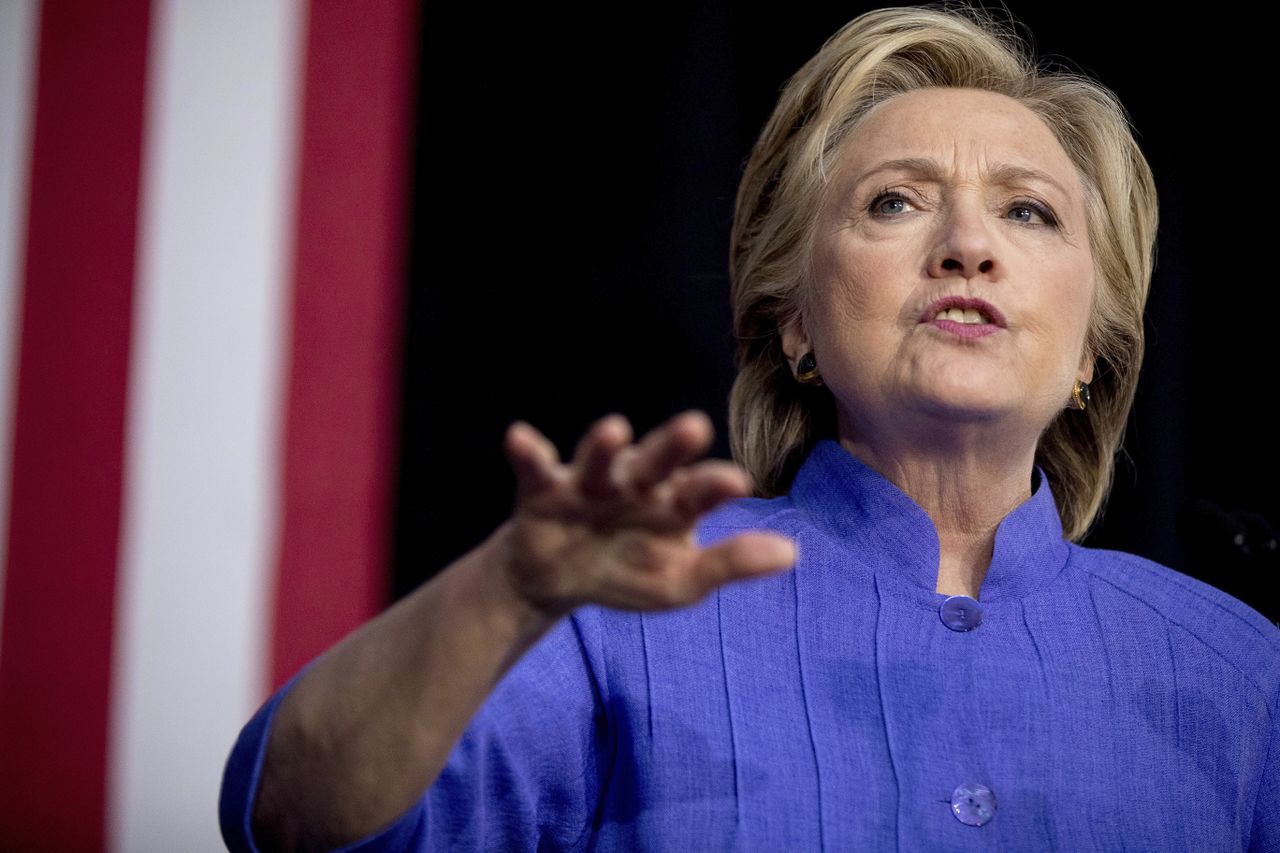

For months I've been getting texts, emails, and phone calls from friends with questions like "Oh my god is Trump going to win?" and "What is Clinton thinking?" and "IS IT TIME TO PANIC?!?!?" With just a week left in the campaign, let me say: Everyone needs to settle down.
Of course anything could still happen, and my suspicion is that this campaign has one more juicy scandal left in it. But Hillary Clinton is still almost certainly going to become president, and the latest non-revelation about Clinton's emails — which is what we have to call it because nothing was actually revealed — isn't going to change that.
In fact, if you look over the scope of the entire race, things have been rather stable. Clinton has led all along, and she still does. If we start at the beginning of 2016, her average margin in the polls has gone up and down between around 3 and 8 points. Now it's about 6, which is actually a pretty comfortable lead (in 2012, Barack Obama never led Mitt Romney by more than 5.5 points; at this stage he was ahead by 1.5). That's not to mention her advantage in the Electoral College, the fact that Democrats are showing an advantage in early voting (23 million Americans have already voted), or her vastly superior ground organization.
Subscribe to The Week
Escape your echo chamber. Get the facts behind the news, plus analysis from multiple perspectives.

Sign up for The Week's Free Newsletters
From our morning news briefing to a weekly Good News Newsletter, get the best of The Week delivered directly to your inbox.
From our morning news briefing to a weekly Good News Newsletter, get the best of The Week delivered directly to your inbox.
But the essential stability of the race — one with a real but not overwhelming advantage to the Democratic nominee — was about what you would have expected without Donald Trump, based on the state of the economy and Obama's popularity. The political science journal PS: Political Science and Politics recently gathered together nine forecasting models using variables like economic growth and presidential approval to predict this year's results based on what has happened in previous elections; seven of the nine predict a Clinton win, and the creator of one of the remaining two thinks his model is wrong this year.
As crazy as it gets sometimes, what the campaign does more than anything else is reinforce people's existing beliefs. If you're a Democrat, there's a good chance that you like Hillary Clinton more now than you did a year ago. You saw her campaign in a wonkish way, and perform well in all three debates. You heard people you consider smart and thoughtful make a case for why she'll be a fine president. You've put her weaknesses into perspective and given more consideration to her strengths. And maybe most important, you watched as she got viciously and dishonestly attacked by all the people you despise in politics — which activated your tribal instincts to defend her, not only to others but to yourself.
As new information arrived and new stories emerged, everything passed through the filter of what you were already inclined to believe, so it was exceedingly unlikely that some new development would force you to make a 180-degree turn in your thinking. Reinforcement may be the ultimate effect of a weird story like the one that broke last Friday, when we learned that the FBI is looking at some emails that might or might not mention Clinton and might or might not have something to do with that server of hers. Republicans saw the story and said, "Aha! She's corrupt! And bad! Because emails!" Democrats looked at the story and said, "Give me a break — this baloney again?"
Even Donald Trump, as bizarre a candidate as he is, hasn't been able to upend the basic partisan calculation that structures presidential elections. His candidacy has been a test of party loyalty, and the GOP has passed with flying colors — or failed miserably, depending on how you want to look at it. Yes, there are some Republicans who will either vote for Clinton, choose a third-party candidate, or not vote for president at all. Even a small number makes a big difference, since Republicans need nearly absolute loyalty in order to win (that's because there are slightly more Democrats in America than Republicans, so the GOP can't afford to lose any of their partisans). But at the moment polls have shown around six out of seven Republicans sticking with their nominee, a number that is only going to grow (albeit slowly) as Election Day approaches.
And you couldn't have come up with a better individual to test that loyalty. Donald Trump is a recent convert to conservative ideology, which he expresses with absolutely no evidence of sincerity. He offers something to alienate every key constituency in the GOP, whether it's his occasional forays into isolationist talk (anathema to the neocons and other national security conservatives), his protectionism (abhorrent to the business conservatives), his libertine lifestyle and lack of religiosity (a no-no with the Christian right), or his lack of concern with cutting spending (distressing to the Tea Partiers). Then there's the fact that he is, in nearly every way you could imagine, a revolting human being. Barely a week goes by in which we don't learn of some new dimension to his awfulness. If there's any virtue he embodies or character flaw he has avoided, it's hard to think of what it might be.
Yet despite all that, Republicans are still with him. Which is why the election is so close.
But it's not so close that some minor continuation of a story we've already heard plenty about is going to upend everything and turn a Clinton win into a Trump win. So, my liberal friends, take heart. It's not over yet. But almost.
Sign up for Today's Best Articles in your inbox
A free daily email with the biggest news stories of the day – and the best features from TheWeek.com
Paul Waldman is a senior writer with The American Prospect magazine and a blogger for The Washington Post. His writing has appeared in dozens of newspapers, magazines, and web sites, and he is the author or co-author of four books on media and politics.
-
 What should you be stockpiling for 'World War Three'?
What should you be stockpiling for 'World War Three'?In the Spotlight Britons advised to prepare after the EU tells its citizens to have an emergency kit just in case
By Elizabeth Carr-Ellis, The Week UK Published
-
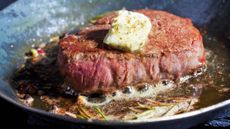 Carnivore diet: why people are eating only meat
Carnivore diet: why people are eating only meatThe Explainer 'Meatfluencers' are taking social media by storm but experts warn meat-only diets have health consequences
By Elizabeth Carr-Ellis, The Week UK Published
-
 Scientists want to fight malaria by poisoning mosquitoes with human blood
Scientists want to fight malaria by poisoning mosquitoes with human bloodUnder the radar Drugging the bugs
By Devika Rao, The Week US Published
-
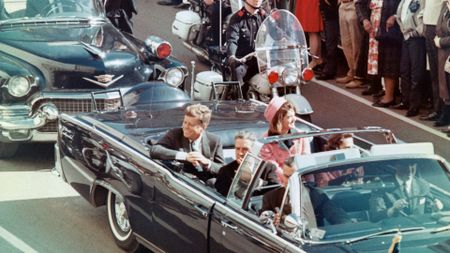 The JFK files: the truth at last?
The JFK files: the truth at last?In The Spotlight More than 64,000 previously classified documents relating the 1963 assassination of John F. Kennedy have been released by the Trump administration
By The Week Staff Published
-
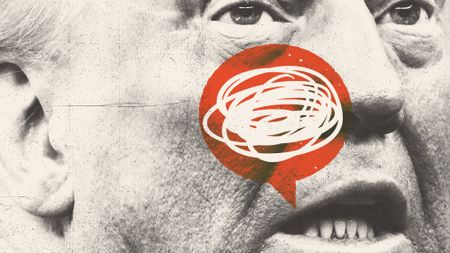 'Seriously, not literally': how should the world take Donald Trump?
'Seriously, not literally': how should the world take Donald Trump?Today's big question White House rhetoric and reality look likely to become increasingly blurred
By Sorcha Bradley, The Week UK Published
-
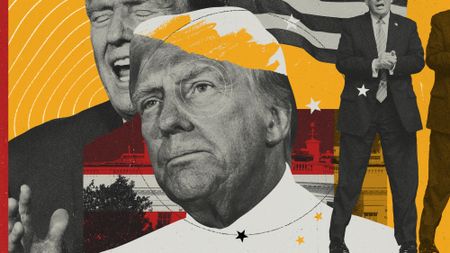 Will Trump's 'madman' strategy pay off?
Will Trump's 'madman' strategy pay off?Today's Big Question Incoming US president likes to seem unpredictable but, this time round, world leaders could be wise to his playbook
By Sorcha Bradley, The Week UK Published
-
 Democrats vs. Republicans: who are the billionaires backing?
Democrats vs. Republicans: who are the billionaires backing?The Explainer Younger tech titans join 'boys' club throwing money and support' behind President Trump, while older plutocrats quietly rebuke new administration
By Harriet Marsden, The Week UK Published
-
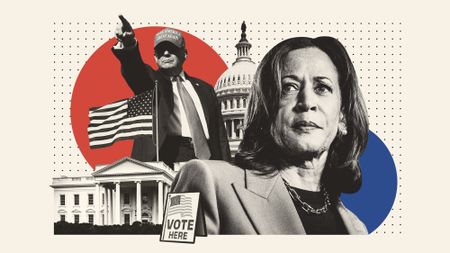 US election: where things stand with one week to go
US election: where things stand with one week to goThe Explainer Harris' lead in the polls has been narrowing in Trump's favour, but her campaign remains 'cautiously optimistic'
By Harriet Marsden, The Week UK Published
-
 Is Trump okay?
Is Trump okay?Today's Big Question Former president's mental fitness and alleged cognitive decline firmly back in the spotlight after 'bizarre' town hall event
By Harriet Marsden, The Week UK Published
-
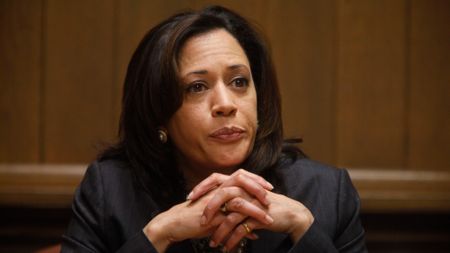 The life and times of Kamala Harris
The life and times of Kamala HarrisThe Explainer The vice-president is narrowly leading the race to become the next US president. How did she get to where she is now?
By The Week UK Published
-
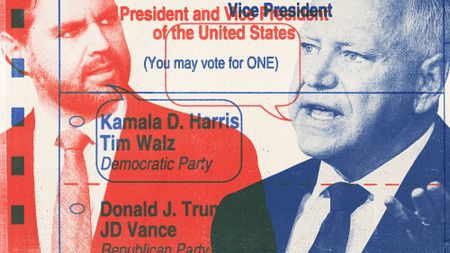 Will 'weirdly civil' VP debate move dial in US election?
Will 'weirdly civil' VP debate move dial in US election?Today's Big Question 'Diametrically opposed' candidates showed 'a lot of commonality' on some issues, but offered competing visions for America's future and democracy
By Harriet Marsden, The Week UK Published
